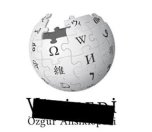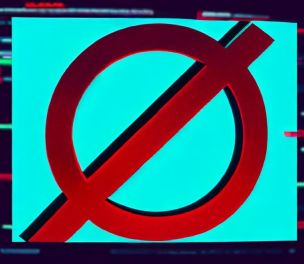Image: Cartoon Movement
Click to read the article in Turkish
Focusing on access blocks to websites, news reports and social media content, "Blocked Web 2019: The Unseen Part of the Iceberg" report has been released by the Freedom of Expression Association (İFÖD).
From 2014 to the end of 2019, access to a total of 408,394 websites was blocked, according to the report prepared by Prof. Yaman Akdeniz from Bilgi University and research specialist Ozan Güven.
CLICK - Erdoğan says his party will draft a bill to 'either completely ban or control' social media
In the last year, access to 130,000 URL addresses, 7,000 Twitter accounts, 10,000 YouTube videos and 6,251 Facebook posts was blocked pursuant to Law No. 5651.
Content providers removed content on more than 50,000 addresses after access block orders, the report also found.
BTK blocked 42,000 URLs
The report found 61,049 URL blocks in 2019, with 42,145 of them issued by the Information and Communication Technologies Authority (BTK) in accordance with Article 8 of Law No. 5651.
16.797 web addresses were blocked upon orders by judgeships, courts or prosecutors, 1,334 were blocked by the Ministry of Health Medicine and Medical Equipment Institution and 292 were blocked by the Capital Markets Board (SPK).
Blocked news reports
Hürriyet newspaper's website had the highest number of blocked reports with 336 in the last year. It removed 318 of them. The newspaper was followed by haberler.com with 226, Sabah newspaper with 222 reports. Those outlets removed 210 and 34 of the reports, respectively.
On the other hand, OdaTV, soL newspaper, memurlar.net, and Evrensel newspaper kept more than 90 percent of blocked reports on their websites. Diken, bianet and Sendika.Org have not removed any content due to an access block.
Between 2014 and 2019
After the URL-based blocking was introduced in February 2014 with Article 9 of Law. No 5651, a total of 16,358 news URLs were blocked and content of 8.523 of them was removed. These reports were banned by 408 penal judgeships with 4,158 decisions.
In the last year, 5599 news reports were blocked and 3,528 were deleted, marking the highest numbers in five years.
The media outlets with the highest numbers of blocked reports since 2019 are Hürriyet (1,858), Sabah (1,118), Cumhuriyet (853), Sözcü (809) and T24 (777).
While the Article 9 only authorizes penal judgeships of peace to block access to a web address, the number of deletions due to court orders is increasing, the report notes, warning of increasing self-censorship.
Turkey is the country that sent the highest number of court orders to Twitter, the report said, citing the company's transparency reports. Accordingly, the 7,396 court orders sent to Twitter between 2012 and 2019 came from Turkey.
About Freedom of Expression AssociationThe Freedom of Expression Association (İFÖD) was founded in 2017 by human rights lawyers and academics, Yaman Akdeniz and Kerem Altıparmak, to defend media and internet freedom. The group provides legal assistance in cases involving a wide range of freedom of expression violations. It filed lawsuits against website blockings, internet shutdowns and bans, including both Twitter and YouTube. It also took some cases to the Constitutional Court and the European Court of Human Rights. |
(HA/VK)














